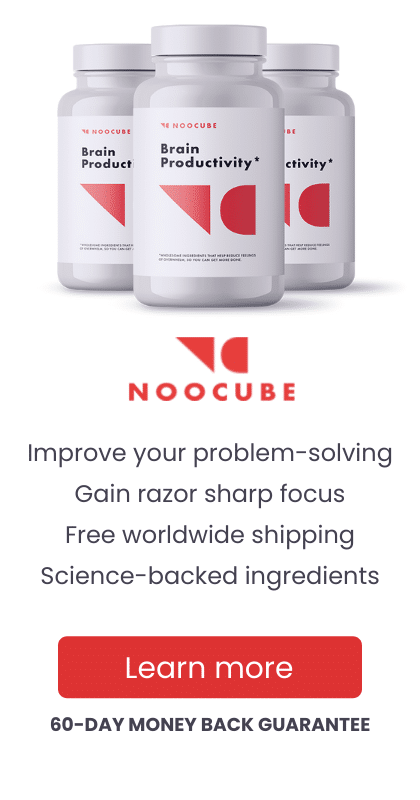Table of Contents
You’ve probably already heard people say red wine is good for your health and especially heart health. This is true, as numerous clinical trials have confirmed it. But, do you know what it is that makes red wine so beneficial? Well, the compound responsible for the health benefits of red wine is Resveratrol.
What is Resveratrol?
Resveratrol is a natural polyphenol compound found in some berries, peanuts, red and purple grapes, and dark chocolate. The compound is found in high concentrations in the seeds and skins of berries and grapes. These are also the parts of the grapes that are mostly used in making red wine, and that’s why Resveratrol is also present in high concentration in red wines.
Resveratrol also has powerful antioxidant properties that protect cells against oxidative stress.
While Resveratrol can be consumed from natural food sources, many people prefer using supplements because they deliver more of the compound. This explains why resveratrol supplements are becoming quite popular.
Resveratrol supplements are manufactured using skins and extracts of red grape and red wine. Some supplements extract Resveratrol from an Asian plant known as Polygonum Cuspidatum.
The supplements promise many different benefits, some of which are not even supported by any scientific evidence.
Health Benefits of Resveratrol
Most of the research on Resveratrol involves animals and test tube tests. There have been very few trials on humans, so it’s challenging to fully comprehend the short and long-term effects of this polyphenol compound.
With that said, here are a few of the benefits that have been identified by the studies:
- Improved Heart Health
Resveratrol may boost your cardiovascular health in various ways. Perhaps the most proven way is through lowering blood pressure by reducing systolic blood pressure (the number that appears at the top of blood pressure readings). Systolic blood pressure is common among old people as it is caused by stiffening arteries. Studies show Resveratrol can increase nitric oxide levels to dilate the blood vessels and improve blood flow.
Resveratrol can also boost heart health by increasing good HDL cholesterol and fighting the formation of blood clots.
It’s worth noting that the studies supporting these benefits used high doses of Resveratrol. The scientists also recommended further human trials on the same.
- Improved Aging and Longevity
Some reports claim that Resveratrol can extend the lifespan of certain organisms. Several animal trials have been done to investigate this effect. These produced rather mixed results. Some organisms did experience prolonged lifespan by as much as 60%. However, this was observed in organisms that are less related to humans, so it’s highly unlikely that humans will experience the same effect.
More clinical trials are necessary to determine whether there is a direct link between Resveratrol and lifespan.
- Slows Down Cancer Cells
Several animal and vitro studies suggest that Resveratrol can fight cancerous cells. The studies show that this compound can prevent the growth of cancer cells, and it can change the expression of certain genes to prevent the spread of cancer. Some reports also claim that Resveratrol can change the expression of certain hormones, and in doing so, it can combat some hormone-dependent cancers. In general, the studies claim that Resveratrol can fight cancers linked to the breasts, colon, prostate, and skin.
Sadly, the research on this subject is limited to animal and lab tests only. It’s hard to tell whether Resveratrol can have a similar effect on humans, how it can do so, and at what dosages.
- Protects the Brain
Resveratrol has antioxidant properties that can protect the brain and fight age-related cognitive decline. The compound can also fight inflammation, another common cause of brain cell damage that affects cognition.
Research shows that Resveratrol can inhibit the activities of a protein called beta-amyloid, which plays a role in the formation of plaques that are linked to Alzheimer’s disease.
Additional research on the link between Resveratrol and neurodegenerative disorders like Alzheimer’s should be very interesting.
- Improves Insulin Sensitivity
Resveratrol can increase insulin sensitivity and reduce the risk of developing diabetes. It can also prevent diabetes complications by activating AMPK, reducing inflammation, and inhibiting sorbitol. Sorbitol is a sugar alcohol that induces oxidative stress.
The effects of Resveratrol on insulin sensitivity and diabetes as a whole have been observed in animal studies only. The scientists also reported that Resveratrol is likely to be more effective on people who already have diabetes than those who don’t.
Resveratrol Side Effects
One of the many downsides about a compound that is not thoroughly studied is you can’t tell what to expect. The possible long-term side effects of taking Resveratrol remain a mystery. The good news is that animal studies have not indicated any severe side effects. Hopefully, that would be the same case in humans.
Drug interaction is a serious concern here as well, so don’t use resveratrol supplements without a doctor’s approval if you are under a different medication. Studies show that it can interact with blood thinners like ibuprofen and aspirin.
Resveratrol Dosage
Another problem with Resveratrol is there is no reliable guideline on dosing. Studies show that you need to take it in high doses to achieve some of its benefits. In some trials, scientists used between 250 and 1000mg of Resveratrol. It’s really hard to know what exact dose you need to take. Consider talking to your physician before using Resveratrol.
Where to buy Resveratrol
Resveratrol joins the long list of highly promising compounds that can be very beneficial to humans. The major challenge is the lack of enough clinical trials to give us answers on the exact benefits it can produce


